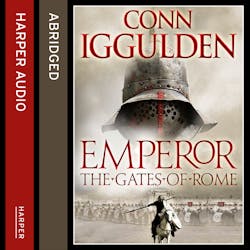In "The Pier-Glass," Robert Graves masterfully weaves a tale that explores the complex interplay between love, deception, and the search for identity. Set against the backdrop of early 20th-century England, the narrative is rich with lyrical prose and introspective depth, characteristic of Graves' style. The novel oscillates between reality and surrealism, employing a fragmented narrative that invites readers to question the authenticity of perceptions, ultimately reflecting the tumultuous cultural landscape of its time, influenced by the aftermath of World War I and evolving societal norms. Robert Graves, renowned poet and novelist, is recognized for his adventurous spirit and profound literary contributions. His experiences on the front lines during World War I left an indelible mark on his worldview, imparting a sense of disillusionment that permeates his writing. Drawing from his own quest for self-identity amidst chaos and transformation, Graves infuses "The Pier-Glass" with autobiographical elements, mirroring his psychological struggles and philosophical inquiries that echo throughout his oeuvre. This compelling narrative is recommended for readers interested in psychological depth and historical context, as well as those seeking to understand the intricacies of human relationships. Graves' poignant exploration of self-deception and the quest for truth makes "The Pier-Glass" an essential read for both literary enthusiasts and those intrigued by the human condition.
The Pier-Glass
Kom i gang med denne bog i dag for 0 kr.
- Få fuld adgang til alle bøger i appen i prøveperioden
- Ingen forpligtelser, opsiges når som helst
Forfatter:
Sprog:
engelsk
Format:
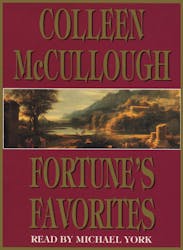
Fortune's Favorite
Colleen McCullough
audiobook
Caesar's Women
Colleen McCullough
audiobook
Grass Crown
Colleen McCullough
audiobook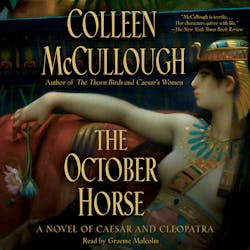
The October Horse : A Novel of Caesar and Cleopatra
Colleen McCullough
audiobook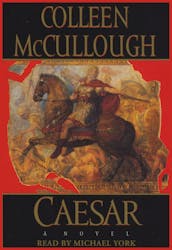
Caesar
Colleen McCullough
audiobook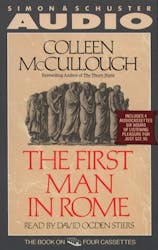
The First Man in Rome
Colleen McCullough
audiobook
Lonesome Dove : A Novel
Larry McMurtry
audiobookbook
A Day of Fire : A Novel of Pompeii
Kate Quinn, Stephanie Dray, Ben Kane, Eliza Knight, Sophie Perinot, Vicky Alvear
audiobook
The Son
Philipp Meyer
audiobookbook
By Sorrow's River: A Novel
Larry McMurtry
audiobookbookThe Gates of Rome
Conn Iggulden
audiobook
The Thirty Names of Night : A Novel
Zeyn Joukhadar
audiobookbook

Good-Bye to All That: An Autobiography :
Robert Graves
audiobook
The Poetry of World War One
Siegfried Sassoon, Thomas Hardy, Isaac Rosenberg, Rupert Brooke, Katharine Tynan, Jessie Pope, Laurence Binyon, W. B. Yeats, Rudyard Kipling, Wilfred Owen, Robert Graves, Francis Ledwidge, Ivor Gurney, Mary Borden, Gertrude Stein
audiobook
The Nazarene Gospel Restored
Robert Graves, Joshua Podro
book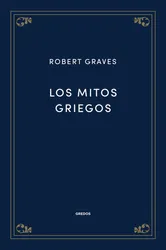
Los mitos griegos
Robert Graves
book
Tierra de nadie : (Poesía inglesa de la Gran Guerra)
Rolando Costa Picazo, Edmund Blunden, Robert Graves, Wilfred Owen, Isaac Rosenberg, Siegfried Sassoon, Marian Allen, Nora Bomford, Vera Brittain, Eleanor Farjeon, Charlotte][AUTHOR Mew, Elizabeth Underhill
book

